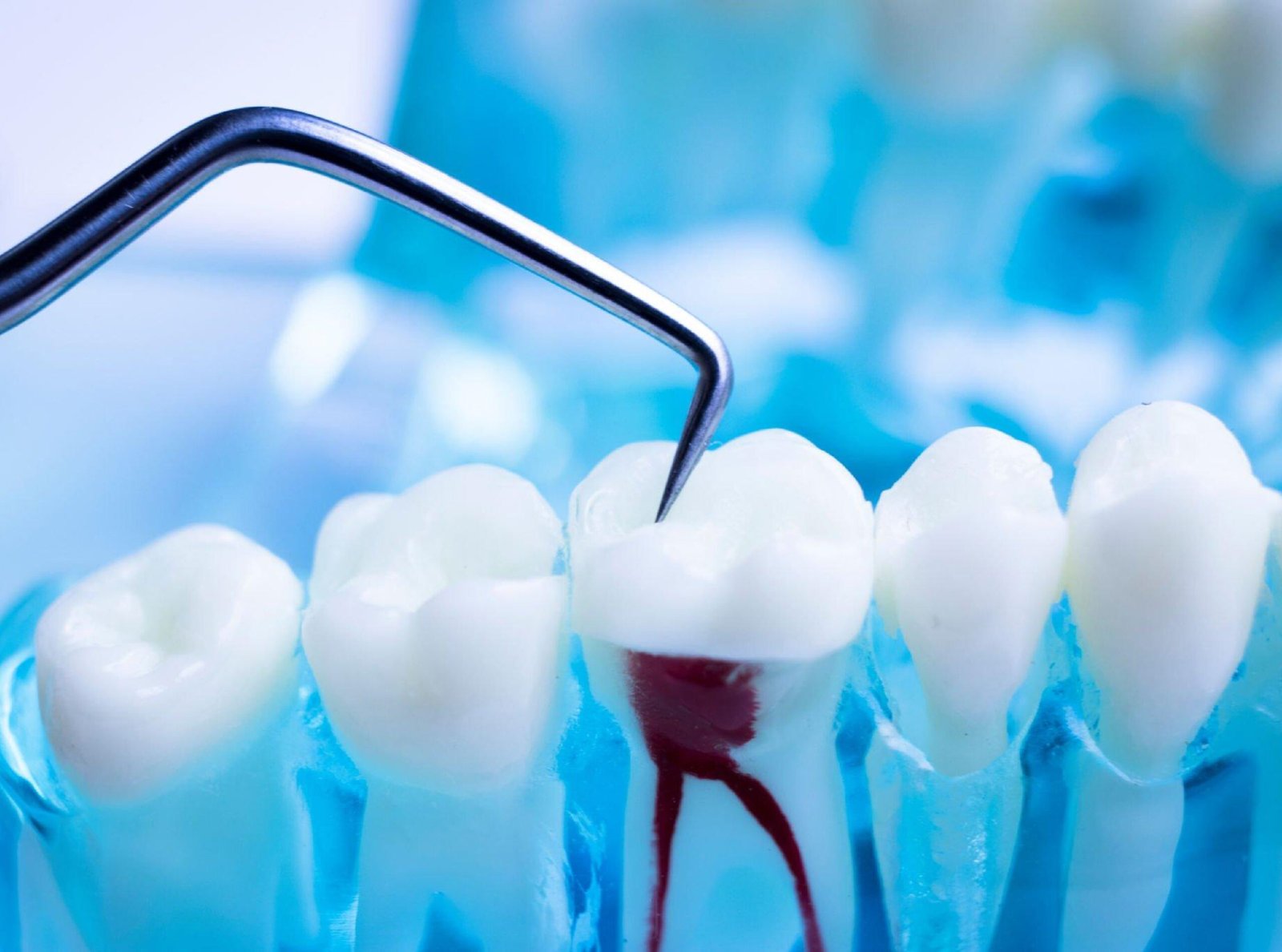
Root Canal Treatment
Welcome to our comprehensive Root canal treatment! If you’re suffering from a severely damaged or infected tooth, you’ve come to the right place. Root canal treatment is a dental procedure that can save your natural tooth and alleviate pain caused by infection or decay. In this article, we will explain the process of root canal treatment in simple, easy-to-understand language, helping you make an informed decision about your oral health.
Understanding the Problem
Before delving into root canal treatment, it’s important to understand why it may be necessary. When tooth decay or infection reaches the innermost layer of your tooth, known as the dental pulp, it can cause intense pain and discomfort. The dental pulp contains nerves, blood vessels, and connective tissues, and
if left untreated, the infection can spread and lead to tooth loss. Root canal treatment aims to remove the infected pulp, clean the tooth’s interior, and seal it to prevent further infection or damage. Consultation and Examination: Your journey begins with a thorough examination by a qualified dentist. They will take X-rays to assess the extent of the infection and determine if root canal treatment is
necessary.
Anaesthesia and Isolation:
To ensure your comfort during the procedure, the dentist will administer alocal anaesthetic to numb the area around the affected tooth. They will also place a dental dam, a thin sheet of rubber, to isolate the tooth and protect the rest of your mouth from bacteria.
Accessing the Pulp:
Once the area is numb and isolated, the dentist will create a small opening in the tooth’s crown to gain access to the infected pulp.
Removing Infected Pulp:
Using specialized tools, the dentist will carefully remove the infected pulp from the root canals. The canals will then be cleaned and shaped to prepare them for filling.
Filling and Sealing:
After cleaning, the dentist will fill the canals with a biocompatible material called gutta-percha and seal the opening to prevent reinfection.
Restoring the Tooth:
Depending on the condition of your tooth, the dentist may recommend placing a dental crown or filling to strengthen and protect it. This step helps restore the tooth’s function and
appearance
After-care and Benefits
Post-Treatment Care:
After the root canal procedure, your dentist will provide instructions on how to care for the treated tooth. This may include avoiding hard or chewy foods temporarily and maintaining good oral hygiene practices.
Pain Relief and Restoration:
Root canal treatment effectively eliminates pain caused by infection and preserves your natural tooth. It allows you to chew, speak, and smile with confidence, restoring your oral health and overall well-being.
Long-term Tooth Preservation:
By saving your natural tooth, root canal treatment helps maintain proper alignment and prevents adjacent teeth from shifting. It also eliminates the need for extraction and costly tooth replacement options like dental implants or bridges.
Improved Appearance:
Root canal treatment, along with the placement of a dental crown or filling, enhances the aesthetics of your smile by restoring the tooth’s shape, size, and colour.
Cost-Effectiveness:
Root canal treatment is often more cost-effective than extracting the tooth andreplacing it with an artificial one. Preserving your natural tooth can save you money in the long run.
When Do You Need Root Canal Treatment?
Root canals are generally recommended or required when there is an infection deep within the tooth. The pulp inside the tooth becomes infected with bacteria due to an injury or because of an untreated cavity. Without proper treatment, the infection can become severe enough that you might have to get your tooth removed altogether.
What After The Procedure?
It is very important for you to take good care of your teeth and gums, and your overall oral hygiene after a root canal. You may have to schedule an additional or a follow-up visit with your dentist for taking X-ray of the treated tooth, to ensure all signs of infection are gone. Further, oral care includes following a strict routine at home, including brushing twice a day, properly washing your mouth after each meal, and avoiding chewing on hard foods as it may cause the tooth to break.
With proper care and attention, your tooth that is treated with a root canal treatment can stay healthy for the rest of your life, and you might not feel the need to see the doctor again for the same.
Conclusion:
Root canal treatment is a vital dental procedure that can save your natural tooth, alleviate pain, and restore your smile. By understanding the process and its benefits, you can make an informed decision
about your oral health. Don’t let tooth pain or infection compromise your


